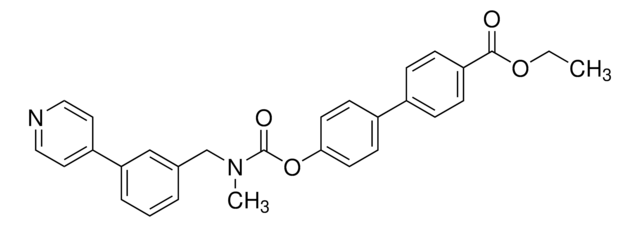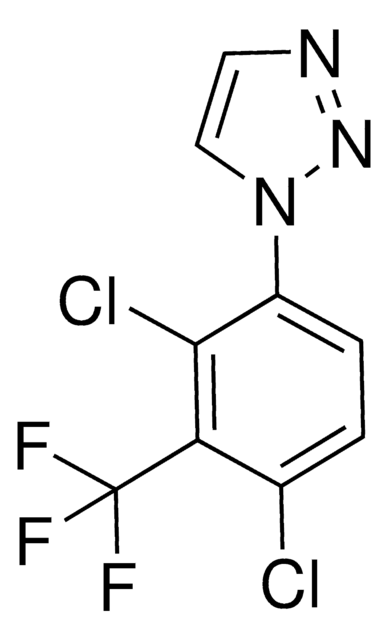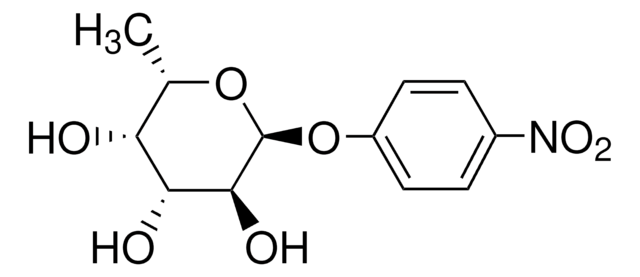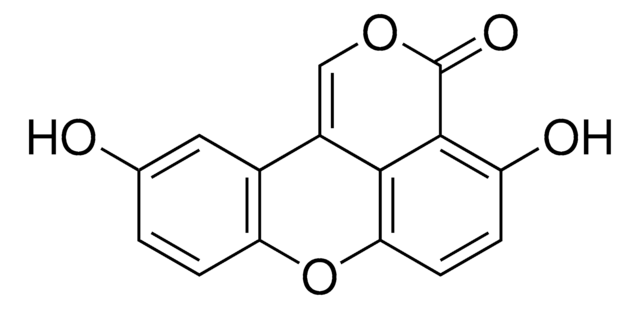SML1180
WWL229
≥98% (HPLC)
Synonym(s):
2-(3-Methoxypropyl)-1-piperidinecarboxylic acid 4-nitrophenyl ester, 4-Nitrophenyl 2-(3-methoxypropyl)piperidine-1-carboxylate
About This Item
Recommended Products
Quality Level
assay
≥98% (HPLC)
form
oil
color
colorless to light yellow
storage temp.
2-8°C
SMILES string
O=C(OC1=CC=C([N+]([O-])=O)C=C1)N2C(CCCOC)CCCC2
InChI
1S/C16H22N2O5/c1-22-12-4-6-13-5-2-3-11-17(13)16(19)23-15-9-7-14(8-10-15)18(20)21/h7-10,13H,2-6,11-12H2,1H3
InChI key
XVBRVSAGMWRVCK-UHFFFAOYSA-N
Biochem/physiol Actions
Storage Class
11 - Combustible Solids
wgk_germany
WGK 3
flash_point_f
Not applicable
flash_point_c
Not applicable
Choose from one of the most recent versions:
Certificates of Analysis (COA)
Don't see the Right Version?
If you require a particular version, you can look up a specific certificate by the Lot or Batch number.
Already Own This Product?
Find documentation for the products that you have recently purchased in the Document Library.
Related Content
The Cravatt group develops innovative technologies to understand enzyme roles in disease, focusing on activity-based protein profiling.
Our team of scientists has experience in all areas of research including Life Science, Material Science, Chemical Synthesis, Chromatography, Analytical and many others.
Contact Technical Service







